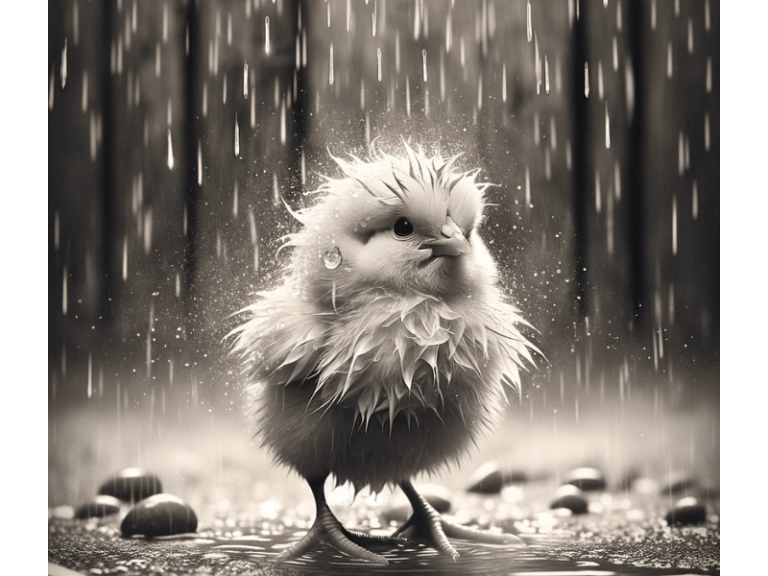Ducks love water. When raising ducklings, you always need to place a basin of water nearby for them to swim in. On rainy days, there’s no need to worry at all; ducklings delightfully frolic in the rain. They simply shake their long necks and wag their short tails when they move to a dry spot, shedding off the water droplets.
This is because ducks have oil-secreting glands at the base of their tails. They spread the oil produced by these glands onto their feathers, making them waterproof, like wearing a raincoat. Anytime you see a duck pecking and preening its tail area and then grooming its entire body, it’s applying this “glue” to its “raincoat.”
But chickens are different—they don’t like water. Not to mention, they can drown if they lose their footing in water. Even a light rain leaves them soaking wet, looking like a raggedy mop. Chickens lack the ability to secrete oil to waterproof their feathers like ducks do. On rainy days, it’s at most a case of a “soaked chicken” for adult hens; for chicks, it could even mean death.
The problem lies in chickens’ poor ability to resist diseases. After getting wet, they lose body heat quickly, leading to significant energy loss. Furthermore, bacteria naturally present in their feathers proliferate rapidly in warm, damp conditions, posing fatal consequences for the chicks.
Therefore, if you’re raising chicks, never let them out in the rain. If by chance they do get caught in the rain and get wet, you should immediately dry them off with low heat or near a warm stove, and then return them to their mother hen for care.

